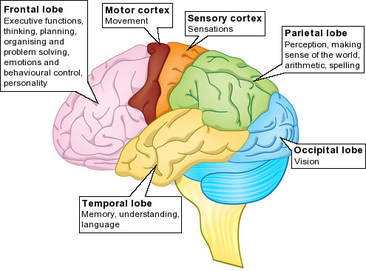Many may remember the old television commercial where the narrator would hold up an egg and say, "This is your brain." He would then crack the egg into a sizzling, hot frying pan and say, "This is your brain on drugs." He would then ask, "Any questions?" It was an extremely effective commercial which is why so many remember it even years later.
Playing the piano (or any instrument for that matter) is fun, but it has also been proven how incredible the brain functions and develops while learning to play the piano. "This is your brain on piano."
Playing the piano (or any instrument for that matter) is fun, but it has also been proven how incredible the brain functions and develops while learning to play the piano. "This is your brain on piano."
Classical FM, an independent radio station in the UK, posted this information on Facebook recently. There have been several articles written about brain development while learning how to play the piano, but I especially liked the example shared by Classical FM as it relates to the different lobes of the brain. Here are just a few examples:
Eyes, ears, hands - these are only a few areas where those who learn piano can excel and accelerate brain development. Also to be taken into consideration are the use of 10 fingers, two feet, keeping time, touch, and artistic interpretation, all using different parts of the brain.
- Sight-reading on the piano involves reading two lines of music, each in a different clef. This activates the visual cortex located in the occipital lobe.
65% of us are visual learners. (http://www.vistacollege.edu/blog/featured/the-7-best-careers-for-visual-thinkers/) Typical skills possessed by visual thinkers are strategic planning, attention to details, spatial reasoning and artistic abilities / hands on skills. Career options for those who are strong visual thinkers could be photography, business consulting, graphic design, and construction technology, as well as today's hot career - robotics.
- Both hands often play intricate rhythms independently from each other. This activity stimulates the primary motor cortex located in the frontal lobe of the brain.
People with good hand-eye coordination handily use their visual senses to assess a situation, then use their hands to execute the given task. (http://work.chron.com/careers-those-good-handtoeye-coordination-12465.html) Some careers would include physicians and surgeons as well as commercial airline pilots and all creating and building occupations.
- Pianists listen to notes being played and adjust their playing accordingly. Listening involves the auditory cortex of the temporal lobe.
According to Tech News, the breakdown of learning styles varies, but a typical K-12 classroom contains 25 percent auditory learners. Possible careers for those with strong auditory skills are judges, postsecondary foreign language teachers, broadcast and sound engineers, interpreters, speech pathologists, and counselors. - Pianists know where all the notes are without having to look at the piano keyboard. This shows strong spatial skills which are developed in the prefrontal cortex of the brain.
The development of the prefrontal cortex plays a significant role in maturation. The brain develops in a back to front pattern, and the prefrontal cortex is the last portion of the brain to fully develop. This does not mean that children do not have functional prefrontex cortices. Rather, they do not develop the complex decision-making and planning skills adults have until later in their development. Experience can play a role in the development of the prefrontal cortex, and children exposed to a variety of stimuli and challenges may develop more quickly. (www.goodtherapy.org/blog/psychpedia/prefrontal-cortex)
The prefrontal cortex is involved in a wide variety of functions, including: - Coordinating and adjusting complex behavior
- Impulse control and control and organization of emotional reactions
- Personality
- Focusing and organizing attention
- Complex planning
- Considering and prioritizing competing and simultaneous information; the ability to ignore external distractions is partially influenced by the prefrontal cortex
Eyes, ears, hands - these are only a few areas where those who learn piano can excel and accelerate brain development. Also to be taken into consideration are the use of 10 fingers, two feet, keeping time, touch, and artistic interpretation, all using different parts of the brain.

 RSS Feed
RSS Feed

